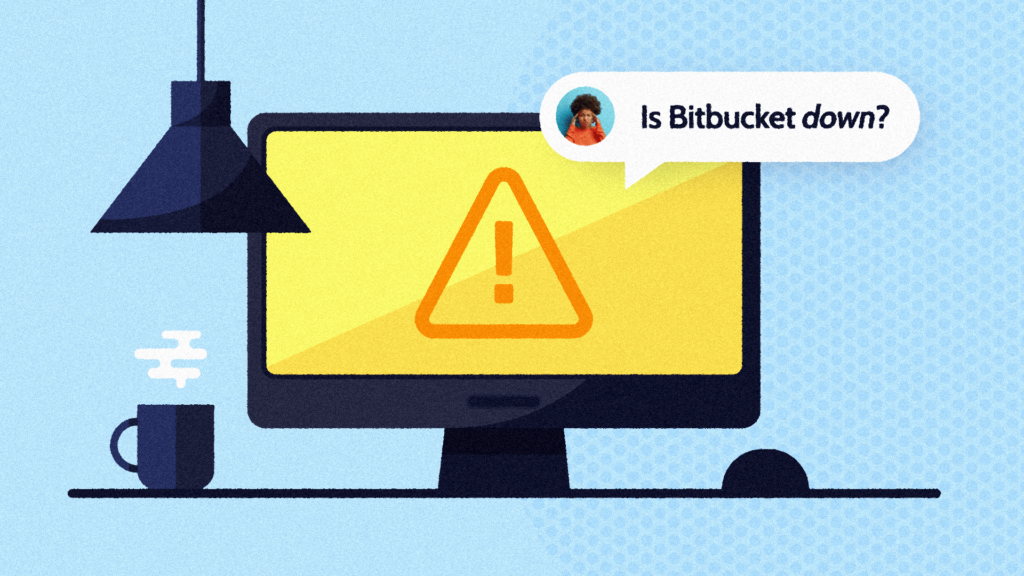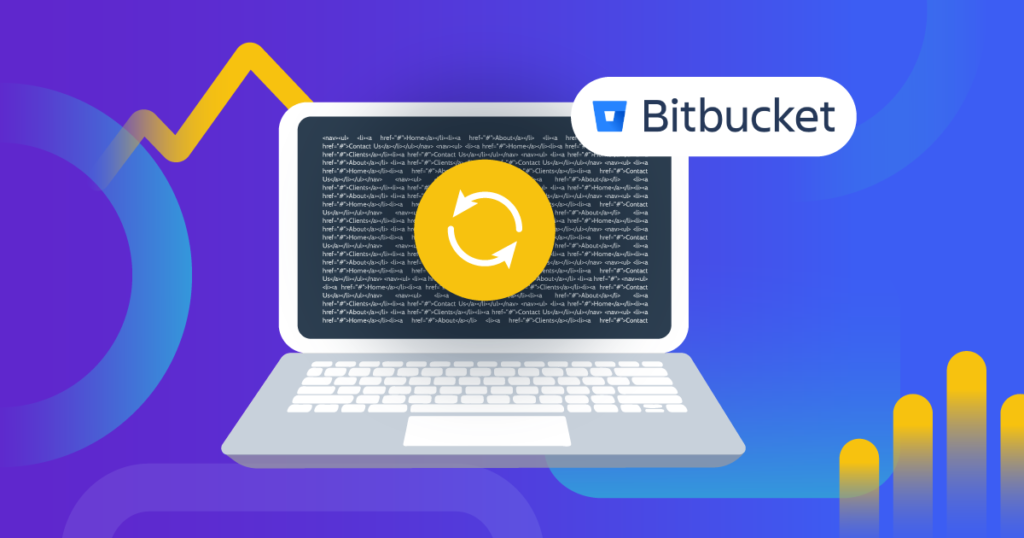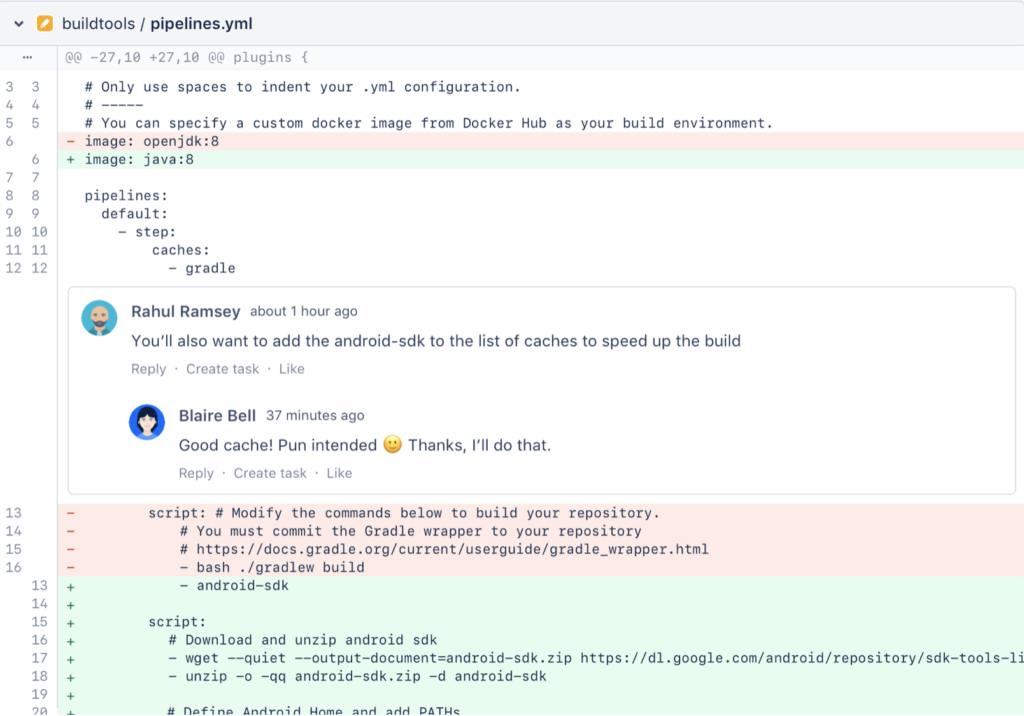Table of Contents
Is Bitbucket backed up?
Bitbucket, provided by Atlassian, has its own backup and disaster recovery processes in place to protect your data. These measures include data redundancy across multiple data centers and disaster recovery strategies to ensure the continuity of their service. However, these backups are designed for their own infrastructure recovery purposes and may not cater to individual repository recovery needs. Like many cloud platforms, Bitbucket follows the Shared Responsibility Model, meaning users share responsibility for data protection with the platform, and are responsible for protecting their account-level data.
Altassian’s Terms of Service clearly explain they take no responsibility for your individual data, stating “We are not responsible for any of your data lost, altered, intercepted or stored across such networks. We cannot guarantee that our security procedures will be error-free, that transmissions of your data will always be secure or that unauthorized third parties will never be able to defeat our security measures or those of our third party service providers.”
While cloning a repository can serve as a basic form of backup, it is not a fully complete backup solution. A cloned repository only includes the codebase and commit history, but does not capture additional data such as issues, comments, pull requests, and any associated metadata. Furthermore, a cloned repository does not offer versioning or a simple restoration process, which are crucial elements for a comprehensive backup strategy.
To create more complete backups that address these limitations, you can use third-party tools like Rewind. Rewind’s Backups for Bitbucket offers automated, scheduled backups that include not just your codebase, but also issues, comments, pull requests, and other associated metadata. Granular backups can be restored at any time using the Rewind self-serve interface, increasing speed to recovery.
Is Bitbucket secure?
Bitbucket is secure by design and follows industry-standard security practices, such as encryption in transit and at rest, as well as providing features like two-factor authentication (2FA), adding an extra layer of protection during the sign-in process.
For enterprise users, Bitbucket offers single sign-on (SSO) integration with various identity providers, streamlining authentication while maintaining security. The platform provides granular access controls, including repository-specific and branch-level permissions, to ensure only authorized users can access your data. Additionally, Bitbucket offers monitoring and auditing features, such as audit logs, to help administrators track user activity and address potential security threats.
Atlassian continuously improves Bitbucket’s security by addressing vulnerabilities, applying patches, and staying up-to-date with the latest security standards. However, no service can promise 100% uptime, all the time, and Atlassian is no exception: users experienced an outage in April of 2022, with some users unable to access their data for up to two weeks.
Despite these robust security measures, it is still essential to have a separate backup in place to protect against accidental deletions, human error, or malicious activities. A comprehensive backup strategy, including using third-party tools like Rewind, ensures quick data recovery in the event of an incident. Security and backups work together to provide a comprehensive approach to safeguarding your code and project data.
Where does Bitbucket store repositories?
Bitbucket stores repositories in their data centers, which are geographically distributed across the globe. This helps ensure high availability and performance for users worldwide.
Why do I need a Bitbucket backup?
A Bitbucket backup is crucial for safeguarding your code and project data, as it provides an additional layer of protection against a variety of risks, including:
Accidental deletions: Mistakes can happen, and code or data might be unintentionally deleted. A backup ensures that you can quickly restore any lost information, minimizing the impact on your project.
Human error: Errors in code or configuration may occur during development or deployment. A backup allows you to revert to a previous, working version of your code, reducing downtime and potential losses.
Malicious activities: Cyberattacks or malicious insiders can compromise your data or code. Backups provide a reliable recovery option in case your repositories are damaged or tampered with.
Third-party integrations: Integrating third-party tools or services into your project can sometimes lead to unforeseen issues or conflicts. Having a backup ensures that you can restore your data to a previous state if needed.
Service outages: While Bitbucket takes measures to maintain high availability, unforeseen circumstances or technical issues may cause service disruptions. A backup helps you maintain access to your code and data during such outages, allowing you to continue working without interruption.
Compliance and audit requirements: Depending on your industry or organization, you may need to maintain backups for compliance or audit purposes. A robust backup strategy can help you meet these requirements and demonstrate due diligence.
Creating backups can be achieved using manual methods, but this approach may not be comprehensive or efficient. Services like Rewind offer more advanced, automated backup solutions that encompass not only your code but also associated metadata, issues, comments, and pull requests. These services provide an efficient, reliable, and convenient way to protect your Bitbucket repositories and metadata, ensuring business continuity.
Can I back up my Bitbucket code repositories for free?
Bitbucket does not provide a built-in solution for free backups. You can manually clone your repositories to create local backups or maintain scripts to leverage the Bitbucket API, but these approaches can be time-consuming and may not cover all your data. Rewind offers automated backup solutions for Bitbucket and other Atlassian products that can save you time and ensure comprehensive backups.
How do I back up a repository from Bitbucket?
Backing up a repository from Bitbucket can be done using different methods, depending on your preferences and requirements. With Rewind, you can connect to your Bitbucket account and automate the backup process, making it easier to schedule backups and recover data easily, protecting your code and project data.
Alternatively, you can manually clone your repositories to create local copies of your code and commit history. While this method can serve as a basic backup, it does not include other essential metadata like issues, comments, and pull requests. To create more complete backups, you can use scripts that leverage the Bitbucket API to export additional data along with your repositories. Keep in mind, however, that this approach may require more technical expertise and maintenance compared to using a dedicated backup service.
Is it possible to back up Bitbucket issues, comments, and pull requests?
Yes, with a solution like Rewind’s Backups for Bitbucket, you can back up not just your repositories but also issues, comments, and pull requests, ensuring comprehensive protection for your project’s data. You can also use the Bitbucket API or third-party tools to export this data in a machine-readable format like JSON or CSV, but these processes can be time-consuming and prone to human error. Re-importing Bitbucket data from a JSON or CSV in the case of data loss can also be a tedious process; therefore an automated backup that can restored automatically improves your time to recovery.
How do I back up only selected repositories?
With a third-party backup solution like Rewind, you can choose which repositories you’d like to back up, providing flexibility and control over your backups. If you prefer a manual approach, you can clone individual repositories or use the Bitbucket API to create custom backup scripts.
Can I schedule automatic backups for my Bitbucket repositories?
Yes, with a backup solution like Rewind, you can schedule automatic backups for your Bitbucket repositories. This ensures that your data is consistently backed up and protected. You can also create custom scripts using the Bitbucket API or Git commands to automate backups, although you’ll need to ensure the data is stored correctly, the scripts are maintained, and the API hasn’t changed or updated.
How can I export my repositories from Bitbucket?
To export a repository from Bitbucket, you can use the “Download repository” feature in the “Downloads” tab of your repository. However, this will only export your code and not issues, comments, pull requests, or other vital metadata.
Can I use a CSV file for backing up Bitbucket?
Bitbucket does not provide a native CSV export option. However, you can use third-party tools or the Bitbucket API to export data, such as issues and comments, in a CSV format. Backup solutions like Rewind can also help you back up and manage your data more efficiently.
Can I use a JSON file for backing up Bitbucket?
You can use the Bitbucket API to export data, such as issues, comments, and pull requests, in JSON format. However, this may not provide a comprehensive backup solution. Third-party backup services like Rewind offer more complete backup options that include your repositories, issues, comments, and pull requests.
Can I export my Bitbucket repository as a .ZIP file?
Yes, you can export your Bitbucket repository as a .ZIP file by navigating to the “Downloads” tab in your repository and selecting “Download repository.” Keep in mind that this will only export your code and not issues, comments, or pull requests. For a more comprehensive backup solution, consider using a third-party service like Rewind which can back up and restore all metadata automatically.
How do I back up Bitbucket Pipelines configuration?
To backup your Bitbucket Pipelines configuration, you can download the ‘bitbucket-pipelines.yml’ file from your repository. This file contains all the necessary configuration settings for your pipelines. Third-party backup solutions like Rewind can also help ensure that your pipelines configurations are backed up along with your repositories, issues, comments, and pull requests.
Are there any limitations or restrictions when backing up Bitbucket repositories?
While there are no specific limitations or restrictions when backing up repositories, you should be aware of the size of your repositories and ensure you have enough storage space available for the backups. Additionally, you may encounter API rate limits when using the Bitbucket API for backups. Using Rewind’s Backups for Bitbucket solution can help manage these limitations and provide a reliable and comprehensive backup strategy.

 Rewind">
Rewind">


